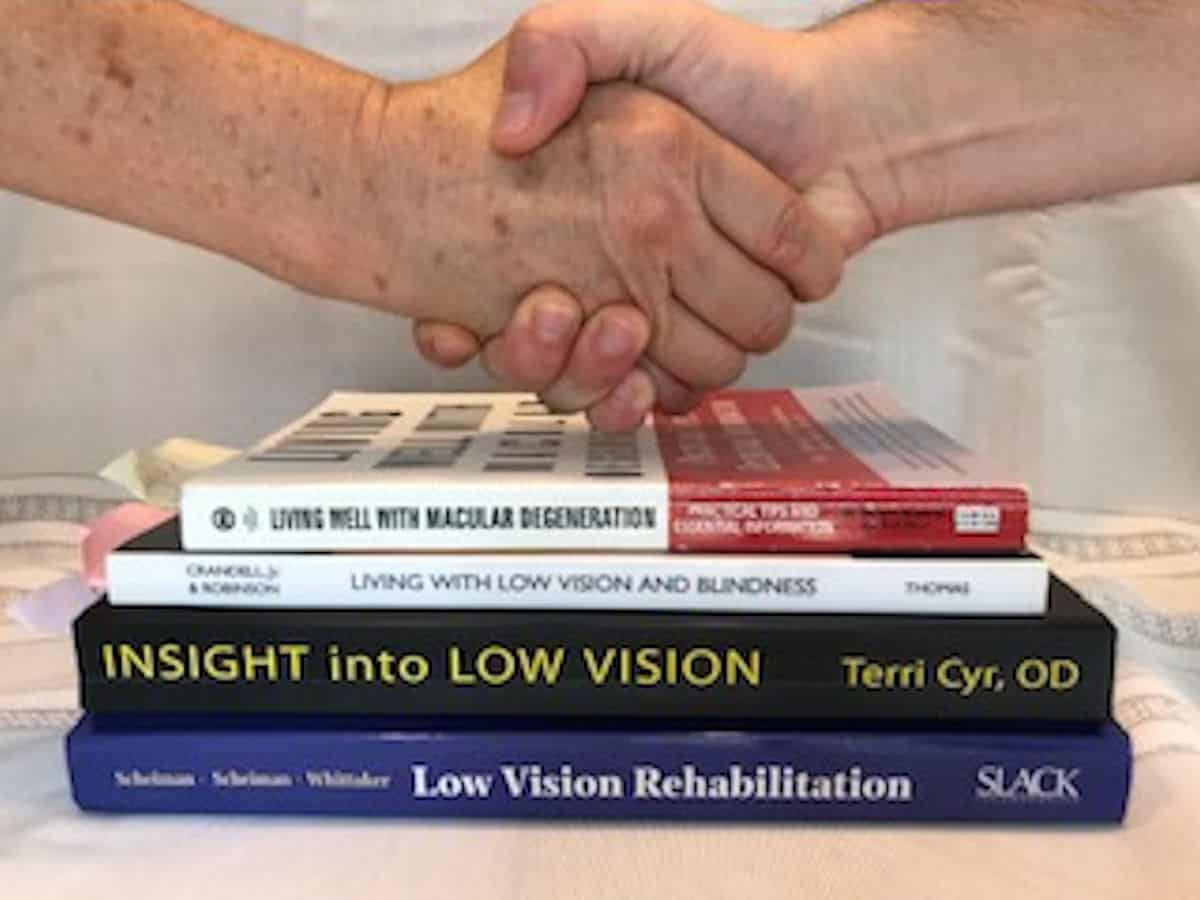Adjusting to vision loss is a transformative process that revolves around embracing abilities rather than disabilities. This step-wise approach encompasses vital aspects such as stress reduction, cultivating a positive attitude, nurturing social connections, stimulating the mind, continual learning, professional guidance, and, of course, keeping humor alive.
Adjusting to vision loss can be a challenging journey, one that requires a shift in perspective towards focusing on ability rather than disability. As you navigate this path, it’s important to acknowledge the areas where challenges arise. While not every obstacle can be overcome, accepting what you can change within your circumstances is a important first step.
1. Reduce Stress
Adjusting to vision loss can bring about significant stress, both emotionally and practically. However, there are strategies you can employ to ease this burden and navigate this transition with more resilience. Here are some key ways to reduce stress as you adapt to vision loss:
How to Reduce Stress While Adjusting to Vision Loss
Adjusting to vision loss can bring about significant stress, both emotionally and practically. However, there are strategies you can employ to ease this burden and navigate this transition with more resilience. Here are some key ways to reduce stress as you adapt to vision loss:
- Organize Your Environment: Simplify your living space by organizing items in a consistent manner. Labeling drawers, using tactile markers, and keeping frequently used items easily accessible can reduce frustration.
- Utilize Assistive Technologies: Embrace the various tools available to assist in daily tasks. Screen readers, magnifiers, and voice-controlled devices can empower independence and alleviate stress associated with inaccessible technology.
- Practice Mindfulness and Relaxation Techniques: Engage in mindfulness practices such as meditation or deep breathing exercises. These techniques can help manage anxiety and promote a sense of calm amidst challenging moments.
- Seek Emotional Support: Connect with friends, family, or support groups who understand your experience. Sharing your feelings and experiences with others who can empathize can provide immense emotional relief.
- Set Realistic Goals: Break tasks into manageable steps and set achievable goals. Celebrate small victories along the way, recognizing the progress you’re making despite the challenges.
- Maintain a Healthy Lifestyle: Physical health directly impacts mental well-being. Aim for regular exercise, balanced nutrition, and sufficient sleep to bolster your resilience against stress.
- Engage in Enjoyable Activities: Make time for hobbies and activities that bring you joy. Whether it’s listening to music, crafting, or spending time in nature, these pursuits can offer a welcome respite from stressors.
- Practice Self-Compassion: Be kind to yourself during this adjustment period. Understand that it’s okay to feel a range of emotions, and acknowledge the strength it takes to adapt to significant life changes.
- Plan Ahead and Stay Organized: Create routines and systems that work for you. Planning ahead for appointments, outings, and daily tasks can reduce last-minute stressors.
2. Attitude Adjustment
Your attitude towards your impairment can greatly influence how you cope. Consider where you fall in these categories:
- The Deniers. You can easily spot them because they are the excuse-makers. It is always the fault of something, or someone else in their mind. Deniers won’t accept or deal with their loss and refuse to make the changes necessary to lead a new ‘normal.’ These are the people who will not accept low vision devices. Often they live in the closet, meaning they don’t tell others about their vision loss. The deniers may remain hopeful that a change in lifestyle will help or that a cure is just around the corner. They end up being frustrated, unhappy people. There are a lot of deniers out there. They need a reality check, and to seek the professional help needed to lead that normal life and to keep moving forward.
- The Angry People. Life is a negative for them. They cannot get past the impairment to see that it is, what it is, and you can rant and rave, but it doesn’t change anything. These people need to turn anger into action.
- The Helpless. This individual feels so sorry for themselves, and languishes in their own helplessness. They are giving up, and look to others to make it easier for themselves. These individuals may realize the benefits of secondary gain. That is, their helplessness garners them more attention and concern from others. Family or friends that overindulge the helpless, are enabling them to remain helpless. The helpless can benefit from the professional help of rehab specialists and counselors.
- The Resigners These are the people that sadly accept their impairment and shut down those more difficult parts of their life, assuming nothing can be done or it is just too hard. They live in mourning of their loss and unrelenting depression, “Woe is me,” Eeyore. These people are part way there. They have accepted their vision loss, now they need to do something about it to ensure a positive quality of life.
- The Adapters. Finally, there are those that see their impairment as a challenge, and as something they just have to deal with. They have accepted it, they are adjusting, and are adapting. Life goes on. “Everybody’s got somethin’.” What doesn’t kill me makes me stronger.” These individuals have a willingness to accept the help of low vision professionals and accessibility devices.
You might experience several different changes in attitude through the process of vision loss. Realize where you are emotionally, and set a goal to learn to accept, adjust, and adapt.
3. Social Interaction is Important
The psychology of vision loss with its accompanied fears, social stigma, loss of independence, and depression can lead one to live a life in isolation. The less you interact with others the more inward you turn. Feelings of unhappiness, loss of self-worth, lack of self-esteem, lack of confidence, and that overwhelming sense of being alone, becomes magnified.
You are not alone. Even if you have a great family support system, communication with others with vision loss, or even other disabilities, is helpful in knowing how they are dealing with life. Family and friends may listen and try to understand your fears and concerns and try to help where they can. But be aware that there may be an expiration date on their capability to listen to complaints, rants, whining, and demands on their time. They love you, but…
Talking with others can help you sort out your own feelings. Support groups were created for this reason. Commiserating with others, listening to how they cope, learning that their fears are similar to yours, and that you are not so unusual.
If support groups are not your thing, consider talking to others who have disabilities other than vision impairment. Often those with vision impairments don’t know anyone else with vision problems. There is a common thread among those with disabilities regarding psychological and social issues. Even if you think you have nothing in common with others, friendships can be built by sharing war stories of disability challenges. You can learn from others with disabilities, not only about how to cope, but about your own strengths and weaknesses.
If your living situation is one in which you cannot access outside support, online message boards and blogs related to various types of low vision and even specific eye diseases are out there. It can be helpful just to be able to read about someone else with the same concerns as you. These sites are also a good source of coping information.
4. Engage Your Mind
Do you wake up in the morning and drag around the house, really not getting anything done. So you turn on the TV, thinking “I’m doing something….I’m watching or listening to TV.” Ok, that’s good for awhile, then what?
Self-help advocates will tell you that to feel self-worth and satisfaction we need to feel a purpose. Setting goals, creating things (work), hobbies, activities both physical and mental, and responsibilities, can help fend off feelings of despair. You will not completely forget your disability, as a matter of fact, it will emerge to remind you of it’s presence throughout the day, but it is how you deal with it that is a measure of your capability to cope.
5. Knowledge is Empowering
I have always believed in knowledge as a source of power. The more you learn and the more you know, that information can make a big difference. A college professor once said to me that you can argue any point with your professor, if you do your homework. I am not saying that you need to become an expert in the field of low vision or the medical nuances of your particular disease, but you can learn to understand the disability, its impact on your visual function, and how to compensate. You can best help yourself by learning how to help yourself.
The information is out there, more so than it has ever been in history. Assistive technology is far more sophisticated and accessible than ever. Public understanding, although it still has a ways to go, is opening up opportunities for those with disabilities.
“Ask, and it will be given to you; seek, and you will find; knock, and it will be opened to you.”
Matthew 7:7 New King James Bible.
6. Seek Professional Guidance
No one has all the answers. Various professionals specialize in different aspects of disability, offering tailored support. These professionals each have an area of expertise to offer. Your needs will change as you reorganize your life and deal with the psychological and social issuers.
A good source of information is the low vision specialist team. They are very knowledgeable about state agencies, community support groups, and organizations that offer help to those with disabilities. You just need to know about them in order to find them and access their services. The person best qualified to advocate for you is you!
7. Maintain a Sense of Humor
Years ago, I listened to a pop-culture self-help CD in which a woman said she helped herself through cancer by watching funny movies and making sure she laughed all day. Well, I don’t know about laughter curing cancer, but I do believe it is good for the soul.
While it is easy to allow all the negative emotions that come along with a life disabled, lifting ourselves up is much harder. Maintaining a sense of humor does not mean that you need to come up with a comedy routine, but it is a mind set of having the capability to put the negative thoughts aside and opening yourself up to the humor of life’s situations. It can mean looking for enjoyment and pleasure in life, whether it is a stress releasing activity, a positive friendship, loving pets, or enjoyable entertainment. Seek out those things that make you smile and laugh.
In the End…
As you navigate the journey of adjusting to vision loss, it’s important to remember that you are not defined by your disability. It’s merely a part of who you are, not the entirety. You are still a person capable of enjoying life’s pleasures and sharing in laughter.
Start by not taking yourself too seriously and welcoming positive thoughts into your life. Remember, your impairment does not diminish your worth or the richness of experiences that await you. So, as you move forward, embrace your full self, disabilities and all, and continue to live a life filled with laughter, joy, and resilience
If you are struggling, it is not unusual. I have written another article: Low Vision, Depression, and Anxiety

